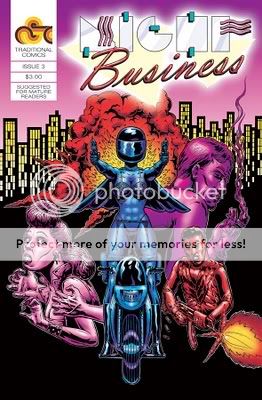Archive for January 2, 2010
Frequent cryers
January 2, 2010Is Up in the Air the first movie about the Great Recession? Because I’ll tell you what. Whether or not the movie succeeds for you largely depends upon how charming you find George Clooney, how sexy you find Vera Farmiga, how adorable you find Anna Kendrick, and how glorious you find cameos from Sam Elliott. I enjoy Clooney, Farmiga is very sexy (although: Permission to speak freely? Bummer about the body double), Kendrick is indeed adorable (and quite talented–she’s been one of the highlights of the Twilights), and Sam fucking Elliott, man. Even though Jason Reitman’s directorial choices are usually strictly functional, and when they’re not (as in the flyover-view credits sequence) they overstay their welcome, there’s more to a movie than that: These folks are fun to spend time around, and that’s a big part of what can make a good movie–just the pleasure of sitting in front of people whose voices and smiles and faces draw you in. So I enjoyed it even if I rarely was blown away by its “Fight Club and Office Space: Ten Years Later” take on soul-crushing corporate culture. Except when, repeatedly, it put you right there in the room with men and women being fired. The level of unemployment and underemployment in this country right now is, frankly, nightmarish, and the inattention paid to it versus the daily Dow Jones rollercoaster is scandalous, and the culture that spawned it is a form of sociopathy. Speaking as someone who was laid off twice before he turned thirty, and has seen it happen to his wife and around three-quarters of his closest friends, I think people devastated by the fear, grief, and shame of losing your job so that your bosses can make more money need to be shown in cineplexes nationwide over and over again until they’re at least as much a part of our national pop-cultural conversation as billionaire superheroes and gorgeous young urban professionals who need to learn something about love.
Carnival of Robot 6
January 2, 2010* It’s a big big day at Robot 6, aka the blog that pays me, because it’s our 1st anniversary. So both at the blog’s page and on the main page of Comic Book Resources you can find tons and tons of goodies, including sneak previews of Jim Woodring’s Weathercraft, Megan Kelso’s Artichoke Tales, Matt Kindt’s Super Spy: The Lost Dossiers, Stuart & Kathryn Immonen’s Moving Pictures, Matt Maxwell & Luis Garagna’s Strangeways: Red Hands, and Parker / Pak / Van Lente / Buchemi / Hardman’s Incredible Hercules. Many many thanks to Eric Reynolds, Jacq Cohen, Paul Baresh, Chris Staros, Brett Warnock, and Leigh Walton for hooking me up with the Fantagraphics and Top Shelf previews!
* Also, Guy Davis drew us an anniversary card. It’s Christmas all over again!
* Finally, I had a great time helping to put together our list of The 30 Most Important Comics of the Decade. The first installment includes my write-ups for Civil War, Achewood, and New X-Men.
* Elsewhere, there are great alternative comics being posted on the Internet everywhere you look. Here’s some terrific new work from Kevin Huizenga and Noel Freibert. What Freibert’s doing in particular, I could stand to see a lot more of.
* Jim Henley proclaims the triumph of geek culture to be “The THING of the Decade.” But because he’s Jim Henley he does it in such a way as to NOT make you feel like Fred “The Ogre” Palowakski.
* Since I’m too intimidated to even peep into the great Matt Zoller Seitz’s days-long rollout of essays on the decade in film, I’ll instead link to this clean and simple list from Peet Gelderblom at Setiz’s old site The House Next Door. I love it, even for the placement of the films I haven’t seen, just because of what I imagine them being like. Is there anything sadder than the fact that I haven’t seen Mulholland Drive yet? Me?!?
Carnival of souls
January 1, 2010* More holiday interviews on the books of the decade at Spurge’s: Chris Mautner on Scott Pilgrim and Tim Hodler on In the Shadow of No Towers. The latter’s the first of these interviews to focus on a book the interviewee doesn’t care for.
* I linked to this in passing yesterday, but here’s the Robot 6 crew’s Best of 2009 post.
* More decade in review from Matt Maxwell, mostly on his favorite and least-favorite superhero material.
* Real-Life Horror: According to rightwing polling outfit Rasmussen, Americans would love to torture the underpants bomber. Happy New Year!
* Not Real-Life Horror: My friend Matthew Perpetua concocted a little flight of fancy about what would happen if a gaggle of Pitchfork bands were hired to play covers at the Insane Clown Posse’s Gathering of the Juggalos. Sample quote: “I probably wouldn’t be alive today if Will Oldham hadn’t rescued myself and Antony and shepherded us to safety on a John Deere tractor.”
* Coming soon: Night Business #3!

Comics Time: Pluto: Urasawa x Tezuka Vols. 1-3
January 1, 2010
Pluto: Urasawa x Tezuka Vols. 1-3
Naoki Urasawa, writer/artist
Takashi Nagasaki, writer
Based on Astro Boy: The Greatest Robot on Earth by Osamu Tezuka
Viz, 2009
200 pages each
$12.99 each
I take back everything I said about Naoki Urasawa. Well, okay, no I don’t, but everything I said about Naoki Urasawa definitely does not apply here. Finally, one of his series contains visual elements that exist for more than simply conveying the information of the story as clearly and dramatically as possible. And I didn’t think that was in the offing, by the way, since in the first few pages you get a “guy with a gun turns a corner, does a half-turn and whips the gun at the camera” sequence that struck me as an unimaginative, un-comicsy rip from the cinema. But a few pages later our straight-laced, sad robot detective Gesicht informs a robot-maid wife that her robot-cop husband has been killed in the line of duty, and Urasawa gives us a series of close-ups of the grief-stricken robot’s machine face, which, of course, never changes. And blam, I was hooked.
In Pluto, a contemporary-superhero-comics-style “reimagining” of a classic < i>Astro Boy story by Osamu Tezuka, Urasawa uses the presence of robots as embodiments of surrealism. From the bereaved wife’s static expression, to the towering North No. 2 in his judge’s robe, to sinister Brau 1589’s mangled scrap heap of a body, to a revamp of Astro Boy (aka Atom) that makes him less like a jaunty short-pantsed slugger and more like an eerie kid out of The Shining, they’re the flourish of Weird, the touches of visual poetry, that I always wanted from my limited experience with Urasawa’s work. That his line and design sensibility is otherwise such a just-the-facts affair only heightens their “thing that should not be” effect.
And they seem to have unleashed more where that came from. The series of murders that are the series’ central mystery are themselves like staged art installations, sort of like the theory that holds the Black Dahlia’s murder as a macabre Surrealist masterpiece. Elsewhere, jagged black lines emerge from transmission static as a literal representation of despair; a huge black thing slouches half-unseen through the smoke and sand of a war-ravaged Persian town, the sight of it driving a young boy mad; traumatic memories of war are represented by indistinct flurries of the violent clash of robotic limbs, or a decontextualized and repeated offer of money for bodies; a sentient teddy bear sits immobile, a puppet master at the mercy of whoever moves it around; a tiny figure is captured leaping from rooftop to rooftop in the final images recorded by a dying robot, its blurry body silhouetted against the sky.
You add all this to Urasawa’s usual page-turning panache, and suddenly what had felt like mere proficiency gains the power to haunt and to move. There are the usual resonances with and/or swipes from other genre-art touchstones: Brau 1589 is Hannibal Lecter with microprocessors, there’s an Iraq War riff as is custom with science fiction that wants to be taken seriously this decade, and the plot–super detective believes that other super beings of his acquaintance are being hunted by a serial killer so he travels around to warn them with varying degrees of success–is straight-up Watchmen Chapter One. Plus, the whole thing is an adaptation of a story about Japan’s Mickey Mouse/Superman cultural juggernaut. (“Flying boy robot in shorts” is the extent of my knowledge of Astro Boy, so what Urasawa is taking from Tezuka narratively or visually is beyond me.) But instead of coming across like button-pushing, all of this, and all the chases and clue-hunting and races against time and unsuspected reversals that are Urasawa’s thriller trademarks, now feels like ammo in the arsenal of someone taking aim at some big old-fashioned sci-fi questions about war, technology, human rights, friendship, childhood, and that old chestnut, what it means to be human. The thing that fills me with delight here is that when you look at that robot maid just standing and staring, unable to express her emotion, you get the sense that for once, this master penciller and plotter doesn’t have all the answers.
